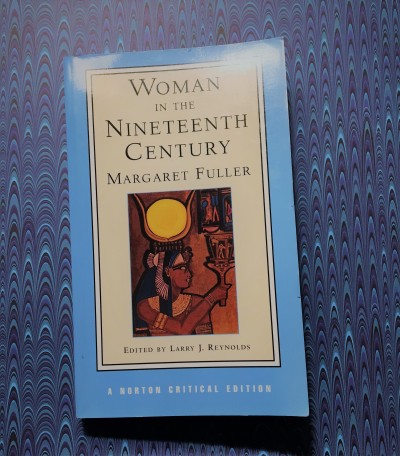Finding new books to read and authors to follow is half the reason why I participate in reading challenges I find on social media.1 But a recent challenge gave me pause when it pointed to some reading I’d been neglecting. As I was scanning through the 2018 Reading Women’s challenge, I discovered this:
23. The book that has been on your TBR list the longest
Immediately, I felt guilty when I thought of the dusty shelf or two that holds the books I plan to get to…eventually. While my to-read list might include books I need to buy or borrow, most that linger on my list are ones I already own. And my longest unread book has been on said shelf for quite some time. Clearly, I’m not the only bookworm with a stack(s) of books-not-yet-read. But it begs the question: why do we commit to reading a book only to cast it aside?
The Reading Runaround
Most of us, I’m sure, will point to an abundance of optimism when it comes to our reading time (so many books, so little time). On occasion, we forget some of the books on our reading queues merely because our lists are long. Naturally, we’re more likely to read books we own versus ones we don’t have.2 But time management, access, and poor memory aren’t the only contributing factors. For every book we truly wanted to read but couldn’t squeeze into our schedule, we also skipped several books in favor of reading something else. Whether it’s flagging attention or lacking commitment to the read, I took an honest look at the other reasons that keeps books on the to–be read list.
Difficult Times: Challenging Books and Environmental Hazards
Among the reasons why a book might become stranded on the to-read shelf is the quality of the time we have to read. Not every reading session occurs in a quiet space: many of us read at moments we snatch while we’re exercising at the gym, sitting in waiting rooms, or commuting, often with televisions blaring in the background. We might, therefore, forgo the books that we perceive as being difficult reads, ones with harrowing accounts, difficult syntax, or complex arguments. While my reading environment affects new book selection, I’m unlikely to abandon a book in progress. It’s not to say environment doesn’t matter: I might occasionally postpone my reading until I’m somewhere quieter. The critical factor here is that I know I won’t choose to begin reading a book that requires deep concentration when that’s not an option. In a busy life, however, that type of book might be placed on hold indefinitely.

Why It’s Difficult to Stay Committed: Waning Attention and Weak Interest
Picking up a book and reading well past bedtime is a common event for bookworms, but we’re also familiar with the reverse problem: when the book either fails to engage or hold our attention. When I’m not “hooked” into the book,3 I find myself skimming ahead to determine whether it improves. If I’m still plodding through it, I put it aside—the same applies for books that I feel don’t maintain my interest despite an intriguing opening.4 In other cases, some books don’t match our expectations for it. When this is problematic, I find my interest in the book declines and it gets shelved. And to be perfectly truthful, sometimes the more complex books out there require more effort to read than we want to make at that moment. Reading through extended passages of dialect, for example, can become tiresome. Even sufficient time and a quiet space for reading combined can’t make tedious reading fun. And if it’s not fun, both attention and commitment to reading have a way of waning.
What I’ve also observed about books that don’t initially capture my attention is that many belong to the “you ought to read this” category. These recommendations come from various lists (“Best Books”, reading assignments, literary classics, etc.) and suggestions (solicited or otherwise) from fellow readers. The difficulty here is that we seem to add “ought-to” books to our reading lists out of obligation more than excitement. There’s an almost medicinal quality to this approach: it’s good for us to expand our reading interests, but will it be to our taste? While people discover new favorites from stretching outside their preferred genres regularly, they also stumble over books that don’t intrigue them. I personally think we should expand our reading horizons, read diversely, and embrace challenging books. But vetting “ought-to” books—skimming a few pages or reading reviews—could be helpful for making more suitable selections.
Reading and Revising
Having promised myself to mostly read books that I owned this year, the Reading Women’s 2018 challenge is a helpful push toward meeting this goal. And taking an honest look at why some books remain on my own to-read list has inspired me to make time for those books I genuinely want to read, however much of a challenge they present. More importantly, it’s made me reconsider whether every book should remain on my list. If I’ve tried reading something on multiple occasions, it may well be time to pass it along to someone else who will enjoy it. After all, there’s so many books and so little time.
NOTES:
- The other half is because I like reading. But you knew that. ↩
- Having reviewed my 2017 reading resolution list halfway through the year, I discovered that I read very few of the books I pledged to read that January ( I read other books instead). Roughly half of the books I skipped were ones I didn’t own. ↩
- The term narrative hook describes the the technique by which the opening (typically, the first line but can be paragraphs or pages) of a story is designed to grab the reader’s attention. A good hook goes a long way towards securing the reader’s interest. ↩
- For the record, this doesn’t mean the book is boring by any means. I’ve returned to books, read them through, and rather enjoyed them, which is why some books linger long so long on my reading list. For the other books, they’re usually just not my cup of tea. ↩



I can definitely relate to the one about reading environments! I love reading longer, denser books over the summer when I have time to relax, but as soon as classes are in session again I’m usually only in the mood to read shorter, lighter books. Great post! 🙂
LikeLiked by 1 person
When you’re already exerting yourself on your studies, it’s a relief to read something more straightforward, isn’t it? And thank you very much!
LikeLiked by 1 person
I find I don’t read as much contemporary fiction as I might because there are so many classics from the past still to enjoy. Nice use of footnotes btw!
LikeLiked by 1 person
The struggle to keep current yet read the classics is very real. And thanks for the inspiration! Markup makes an essay so much easier to negotiate.
LikeLike
You’re welcome. I’ve already forgotten exactly how to do footnotes but now I know where to look it up. And maybe try some other things.
LikeLiked by 1 person
I’m debating whether I should update my former posts to use Markup footnotes as well.
LikeLike
Thanks!
LikeLike
Yes, yes and yes. I think there is also a novelty factor involved. If everyone is talking about one book then I tend to feel left out if I’m reading something else.
LikeLiked by 1 person
I’m guilty of this. I’ve dropped what I was reading when I found a novel people were talking about at my library or a bookstore.
LikeLiked by 1 person